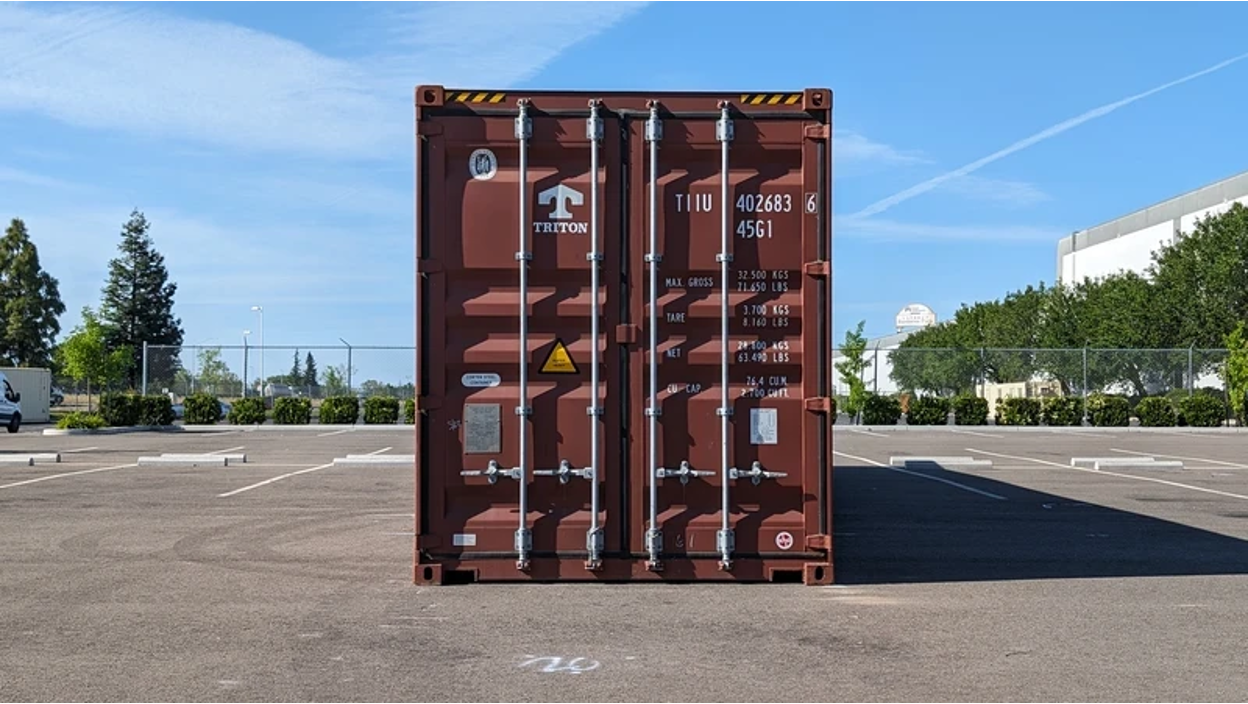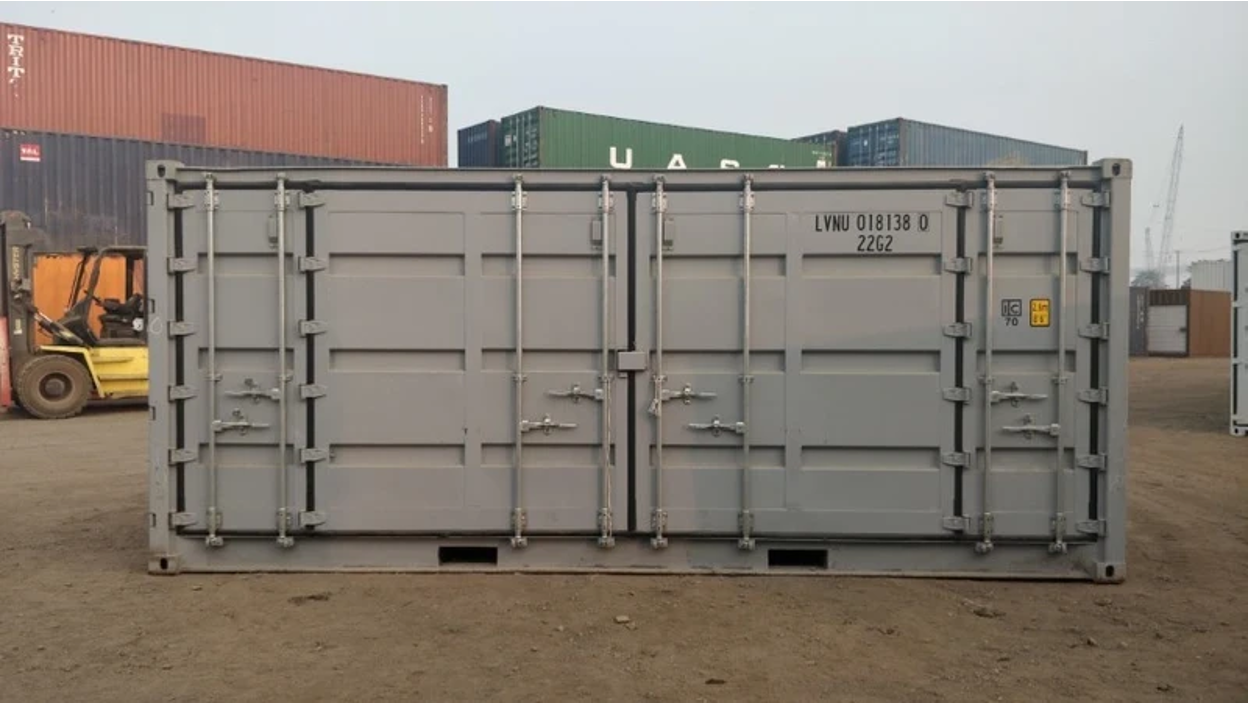Minnesota Shipping Container Zoning Laws, Permits & Building Code Requirements
Get a quoteMinnesota Shipping Container Zoning Law, Permit & Building Code Guide
Key Takeaways
- In Minnesota, shipping containers may require a permit if used for more than 30 days.
- Zoning laws can restrict where you place a container, often disallowing them in residential areas.
- Containers must comply with local building codes for safety and structural integrity.
- Consult local planning authorities to understand requirements in your area.
- Conexwest maintains a range of containers with delivery and customization options to meet zoning regulations.
Shipping Container Zoning Laws, Permits, & Building Code Requirements In Minnesota
General Zoning Laws
- Accessory Use: In many municipalities of Minnesota, shipping containers are classified as accessory structures. This means they can be used for purposes such as storage but are subject to some limitations.
- Size Limitations: Generally, shipping containers must adhere to maximum size restrictions. For instance, many cities limit containers to a maximum of 20 feet in length, 8 feet in width, and 8 feet in height.
- Placement Restrictions: Containers must be placed on a hard surface (like concrete or asphalt) and comply with local setback requirements from property lines and other structures.
- Duration of Use: Some municipalities impose time limits on how long a shipping container can remain on a property. For example, Minneapolis requires a permit if the container is on-site for more than 30 days.
- Prohibitions on Use: Shipping containers cannot be used as dwelling units or for permanent storage purposes in most residential zones. They are typically allowed only for temporary uses.
Permit Requirements
- Building Permits: Most municipalities require property owners to obtain a building permit before placing a shipping container on their property. However, the need and type of permits depend on the intended use of the container.
- Inspection and Compliance: Containers must be inspected so they meet safety standards, including structural integrity and maintenance requirements. Containers deemed unsafe may be subject to removal by city officials.
Building Code Requirements
- Structural Integrity: Shipping containers must be structurally sound and maintained in good condition - this includes making sure that they do not pose hazards to public safety.
- Environmental Compliance: Containers located in floodplain areas must comply with additional floodplain management regulations.
- Utility Connections: If containers are modified for uses requiring utilities (e.g., electricity or plumbing), separate permits will be required.
Here are examples of shipping container regulations in some counties of Minnesota:
Inver Grove Heights
- Shipping containers are allowed as an accessory use in the B-3 zoning district.
- Only one shipping container is permitted per lot.
- Containers must not exceed the specified dimensions and must be structurally sound.
- They must be painted in colors compatible with the primary structure on the lot.
Mounds View
- Cargo containers are prohibited from being used permanently on residential properties.
- They may be temporarily placed for storage but can only be used one at a time per residential property.
- Containers cannot be stacked or modified to appear like typical accessory buildings.
Conexwest, a leader in shipping and storage solutions based in Northern California, offers new, used, and refurbished containers from 10ft to 45ft, with fast delivery within 3-7 days and container fabrication options like adding shelves and locks. We serve over 10,000 customers nationwide, including prestigious clients like the U.S. Navy and Google. As an ISO 9001 and AWS-certified company, we ensure top quality and competitive pricing. |
Tips For Complying With Minnesota’s Regulations

You must comply with local shipping container regulations of Minnesota to avoid fines and legal issues later
- Apply for Building Permits: Before placing a shipping container, get appropriate building permits. This may involve submitting plans that detail the intended use of the container.
- Temporary Use Permits: If the container is for short-term use (less than 30 days), check if a temporary use permit is sufficient, as it often has fewer requirements than a permanent permit.
- Structural Integrity: Make sure the container is structurally sound and maintained well. This includes checking for rust, leaks, and other structural issues.
- Color and Appearance: Paint the shipping container in colors compatible with the primary structure on your property or those deemed aesthetically appropriate by local authorities. Some municipalities may require compliance with signage regulations as well.
- Screening Requirements: In commercial zones, consider landscaping or fencing to screen the container from public view if required by local codes.
- Consult City Officials: Before proceeding, it may be beneficial to consult with local zoning officials or building inspectors to clarify any uncertainties regarding regulations and permits.
- Review Homeowners Association (HOA) Rules: If applicable, check any HOA rules that may impose additional restrictions on placing shipping containers on your property.
Choose Conexwest For Your Shipping Container Needs

Conexwest is a trusted shipping container provider all over the US with thousands of clients in its portfolio
When considering shipping containers for your needs, here’s why we stand out as your ideal partner:
1. Extensive Selection of Containers
We provide a wide variety of shipping containers ranging from 10 to 45 feet in length. Moreover, with new, used, and refurbished containers, we have options that fit different budgets and requirements.
2. Customization Options
We can modify containers to include features such as windows, doors, insulation, electrical wiring, plumbing, and more. Thus, if you have a vision for your container project, we can help you bring it to life.
3. Fast Delivery and Service
With delivery times ranging from 3 to 7 days, you won’t have to wait long to start your project. Our dedicated team brings your container safely and on time, ready for use.
4. Expertise in Compliance
Complying with the zoning laws and building codes in Minnesota can be confusing and time-consuming; we are here to guide you through the process of meeting all local regulations regarding shipping containers.
5. Quality Assurance
We prioritize quality in every container we sell. Thus, our new containers come with a 10-year warranty, while used cargo-worthy containers come with a 5-year warranty. This commitment to quality means you can trust that your investment will last and perform as expected.
6. Customer-Centric Approach
We provide transparent pricing and clear communication throughout your purchasing journey. Our knowledgeable staff is always available to answer questions and assist you in making informed decisions about your shipping container needs.
Frequently Asked Questions (FAQs)
- Are shipping containers considered permanent structures?
In Minnesota, shipping containers are typically considered temporary structures. However, this can vary depending on the intended use and duration of placement. If you're using a container for storage or as an accessory structure, it may be treated as temporary.
For more permanent uses, such as converting a container into a living space, additional permits and compliance with building codes may be required. However, it’s usually prohibited in most regions.
- Do all cities in Minnesota require permits for containers?
Not all cities in Minnesota require permits for shipping containers, but many do, especially if the container is to remain on-site for an extended period. It's important to check with your local municipal office to determine the requirements in your area.
Generally, permits are more likely to be required in residential zones, while commercial and industrial areas may have fewer restrictions.
- How do I find out about local regulations regarding shipping containers?
The best way to find out about local regulations is to contact your city or county zoning office. They can provide the latest and most accurate information about zoning laws, permit requirements, and any other regulations that may apply to your property. Additionally, consulting with our experts in local rules can also be beneficial.
- What should I do if my area has strict zoning laws?
If you live in an area with strict zoning laws:
- Consider applying for a variance or special permit that allows exceptions to existing regulations.
- Explore alternative locations where zoning laws may be less restrictive.
- Engage with local officials to discuss your project and seek guidance on compliance.
- Can I visit Conexwest’s facility to inspect containers before purchasing?
Absolutely! We welcome customers to visit our yard to inspect our inventory of shipping containers. If you're unable to visit in person, we also provide interior and exterior photos of specific units upon request so you know exactly what you are purchasing.
